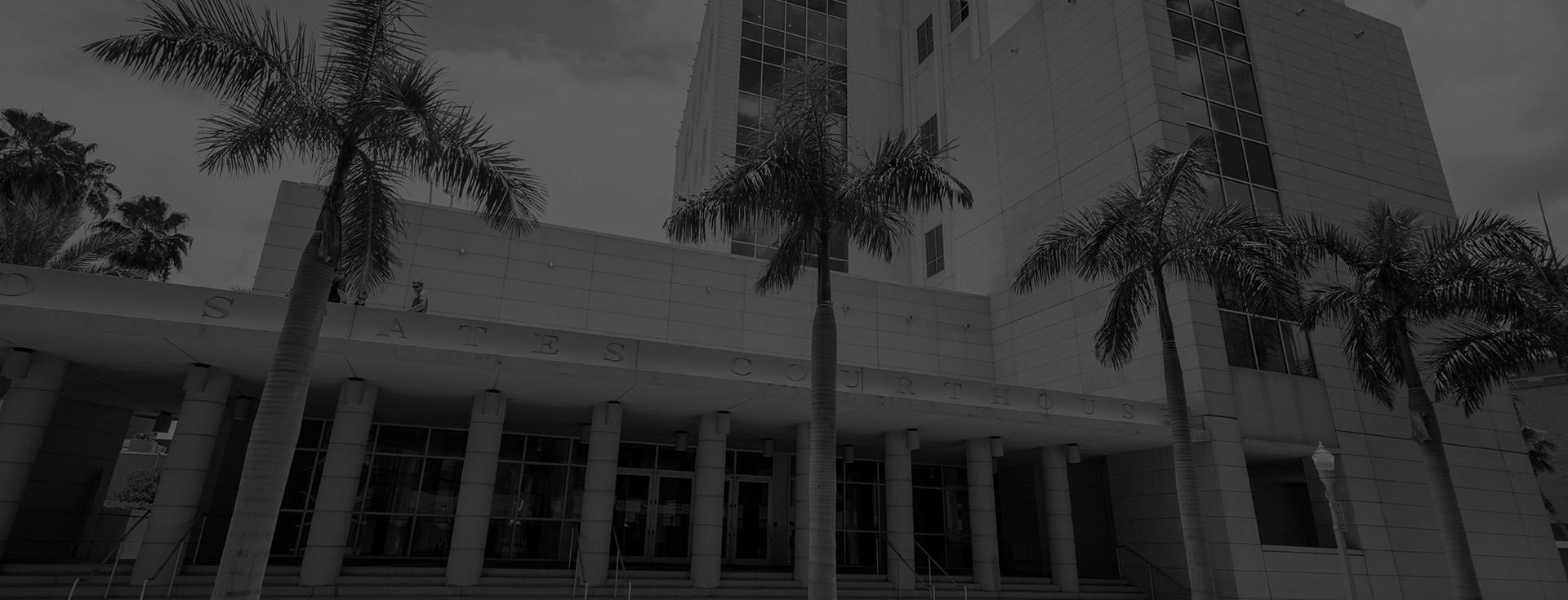
Your Case Deserves Immediate Attention - Call Hubbs Law Today
Miami Risk Protection Order Attorneys
Florida Firearm Confiscation Laws
On February 14, 2018, an expelled student from Marjory Stoneman Douglas High School shot and killed 17 people and injured 17 others. The tragedy that ensued after the country’s deadliest high school shooting prompted the former Governor of Florida, Rick Scott, to sign into law the Marjory Stoneman Douglas Public Safety Act.
Designed to promote public safety and prevent potential mass shootings like the one that occurred in Parkland, FL, the act allows law enforcement to petition a court to grant a Risk Protection Order against someone in an effort to confiscate any firearms one may have in their possession if considered a risk to themselves or their community. While this may occur, you do have rights and the ability to make your case against the order.
What is a Risk Protection Order?
A risk protection order (RPO) is a court order granted by a judge against an individual obligating that person to surrender any firearms, ammunition, and any licenses to carry a concealed weapon or firearm over to law enforcement. The order will remain in effect until the date specified on the order unless an extension is granted. An RPO can be extended up to 12 months and, during this time, the individual under the order is prohibited from purchasing any new firearms or ammunition.
A petition for a risk protection order is initiated by someone who believes an individual poses a danger to himself or herself or others and has access to firearms and ammunition. The person who makes these allegations must contact a law enforcement agency who will then investigate the claims made against that individual. Once law enforcement believes there is sufficient evidence to support the claims made, they can petition the court for a risk protection order.
Upon receiving the petition, the court must set a hearing no later than 14 days after the date on the order. On the day of the hearing, if the court finds that the evidence presented to support the claims made in the petition are clear and convincing, the judge will grant the order and law enforcement will have the authority to confiscate any and all firearms for the period of time specified in the order.
What Evidence is Relevant for a Risk Protection Order?
The court may consider several pieces of relevant evidence that will be used to determine whether a risk protection order may be granted.
Evidence that may be considered includes, but is not limited to, the following:
- Evidence of a recent act or threat of violence made by the respondent against himself or herself or others. The act or threat of violence does not have to involve a firearm;
- Evidence of mental health issues the respondent may have;
- Evidence of the respondent previously violating a risk protection order or a no contact order;
- A previous or existing risk protection order against the respondent can be used as evidence as well as evidence of the respondent violating that order;
- Evidence that the respondent was convicted, had adjudication withheld on, or pled nolo contendere to a domestic violence crime or any crime involving violence or threat of violence in Florida or any other state;
- Evidence that the respondent has threatened to use a weapon against himself or herself or others;
- Evidence of the respondent unlawfully using a firearm;
- Evidence of the respondent using or threatening to use physical force against someone else or evidence of the respondent stalking someone;
- Corroborated evidence of the respondent abusing controlled substances or alcohol;
- Evidence that the respondent recently acquired a firearm or ammunition;
- Any relevant information from the respondent’s family or household members; and
- Witness testimony under oath before the court.
Can you Fight a Risk Protection Order?
Absolutely. You have the right to contest the complainant’s or law enforcement agency’s allegation that you both possess firearms or are a danger to yourself or others. You have the right to hire an attorney to represent you in court at this hearing and to challenge the evidence in court. You also have the right to file your own evidence and call your own witnesses at the hearing. After the hearing, the judge will then determine if you are in fact a danger to yourself or others in considering whether he or she will grant a risk protection order.
What happens If I Violate a Risk Protection Order?
If an individual is placed under a risk protection order and violates the order, criminal charges may be filed against that individual. Section 790.401(11) lists the penalties under the risk protection order act. Under paragraph (b), a person who has in their custody a firearm or ammunition while having knowledge that they are prohibited from doing so through the issuance of a risk protection order commits a felony in the third degree.
Can You Vacate an Existing Risk Protection Order?
Under the Risk Protection Order Act, the respondent, or person accused of posing a credible risk to themselves or their community, has the option to submit one written request for a hearing to vacate the order after the original order has been granted. The respondent may also request a hearing after every extension of the order if it is granted by the court.
On the day of the hearing to vacate the order, it is the respondent who has the burden of proving through clear and convincing evidence that he or she is not a danger to themselves or others while they are in possession of firearms and ammunition. The court will determine if the respondent has met the burden of proof and decide on whether the order shall be vacated.
The most efficient way to satisfy this burden of proof and ultimately have the greatest chance of vacating the court’s order is by hiring an experienced risk protection order attorney. A skilled attorney will conduct a proper investigation and demonstrate to the court by presenting testimony and other evidence why an individual placed under an RPO does not pose a significant danger to themselves or others while having a firearm in their custody.
Find an Attorney for Risk Protection Hearings
If you were served with a risk protection order or if you were arrested for violating a risk protection order in Miami, FL, or anywhere in Miami-Dade County, contact an experienced Miami risk protection order attorney to help you present the best defense for your case.
Regardless of the stage your case is at, whether it is set for an initial hearing, hearing to extend the order, or a hearing to vacate the order, you need a qualified and knowledgeable representative to assist you in order to have the best possible outcome in court.
At Hubbs Law Firm, we fight to protect the rights of clients who are served with a risk protection order and who are accused of violating a risk protection order in Miami, Miami Beach, Hialeah, Miami Gardens, North Miami, South Miami, Kendall, Palmetto Bay, Pinecrest, Homestead, and anywhere else in Miami-Dade County.
Call us today at (305) 570-4802 to schedule a free initial consultation to discuss your case.
Additional Resources
- Informational Brochure on Risk Protection Orders provided by the Florida Courts
- Online Risk Protection Order-Related Forms
- Marjory Stoneman Douglas High School Public Safety Act
- National Domestic Violence Hotline – The Domestic Violence Hotline was founded from a grant from the Administration on Children, Youth, and Families and the U.S. Department of Health and Human Services. Find information on a domestic violence hotline that can be reached 24 hours a day 7 days a week by phone call, text, or chat.
- Miami-Dade County State Attorney’s Office - the Miami-Dade State Attorney’s Office prosecutes individuals who are charged with crimes related to domestic violence.
- Florida Courts - Find information on filing an injunction for protection against domestic violence.
- Department of Children and Families (DCF) - get domestic violence information from the Department of Children and Families who is the Florida agency tasked with protecting children in domestic violence situations. DCF has a domestic violence hotline that can be used 24/7.
- Miami-Dade Clerk of Court- find information on filing an injunction for protection against domestic violence in Miami-Dade County.

Attorneys E.J. & Erika Hubbs
As professional Miami criminal defense attorneys, we take every case personally give every client the deliberate care it deserves. Our clients become part of our family and we fight relentlessly for their rights. Read more about us to find out how we can help you.

-
"On the personal note she treats you like family and I recommend her to anyone that needs help."Gabriel M.
-
"I highly recommend Hubbs Law, P.A. When I found out my license was suspended for a ticket I did not know I had, I was scared and did not know where to go from there."Christina K.
-
"Erika, por mucho, es la mejor abogada de inmigración, me ayudó cuando nadie más lo haría y gracias a todo su trabajo, pude resolver mi asunto de inmigración con la nota personal que te trata como a una familia y la recomi"














